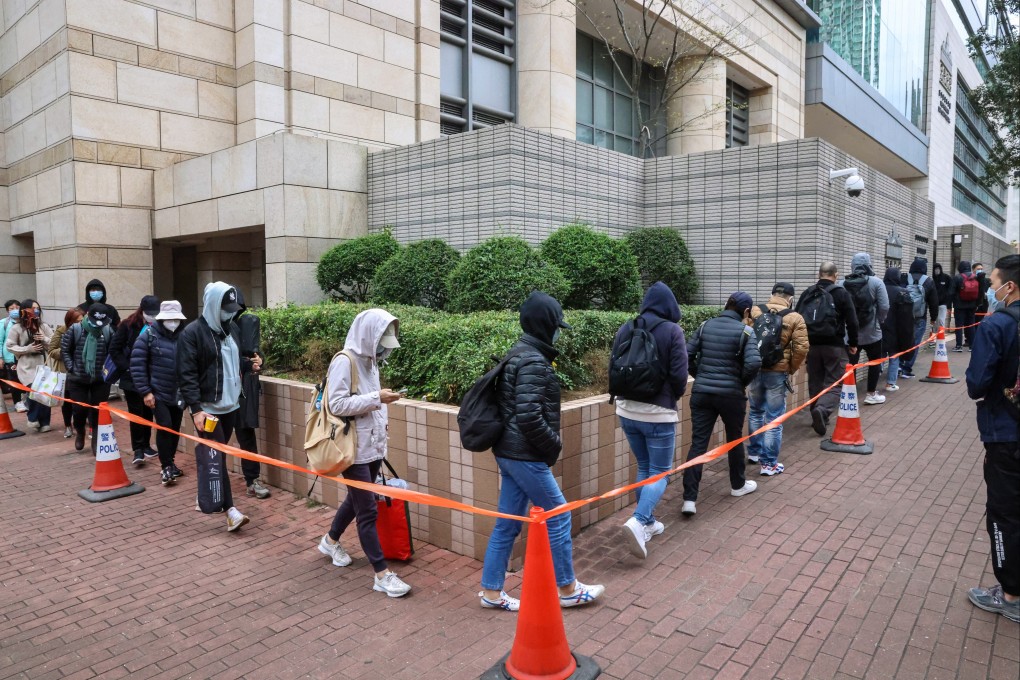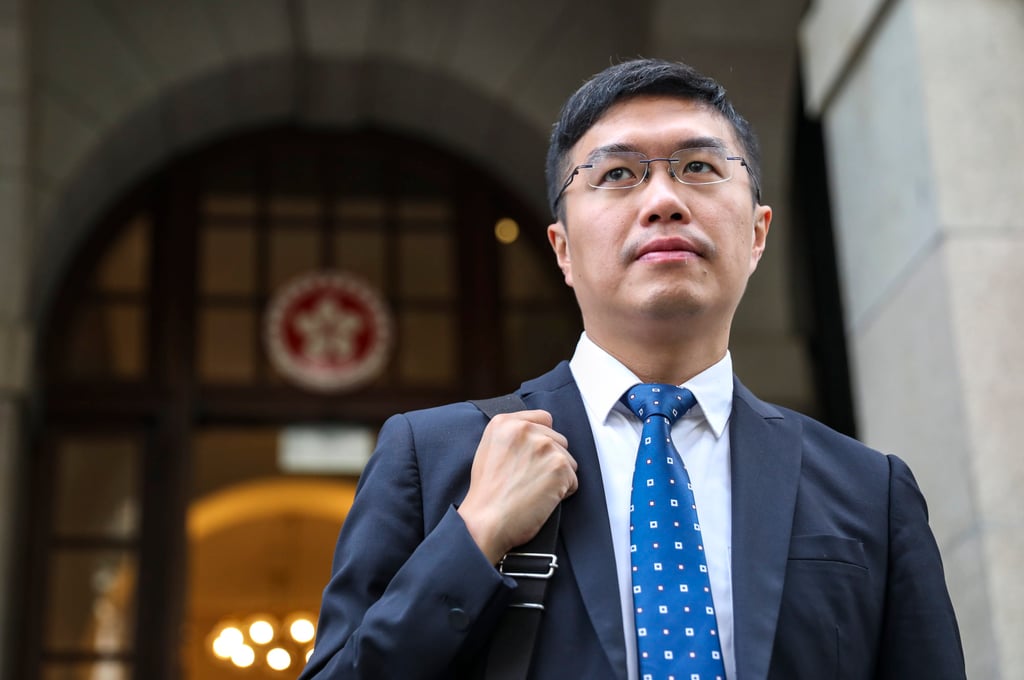Hong Kong 47: court told Hong Kong opposition split over how to choose best candidates in 2020 unofficial primary
- Former lawmaker tells court prospective primary candidates ‘took it for granted’ they could reject legislation under city’s mini-constitution
- Judges hear opposition planned to force chief executive to give in to five demands, including holding an inquiry into alleged police brutality in 2019 unrest

Hong Kong’s opposition camp was divided over how to pick the best candidates to run for the legislature through a 2020 primary election, an organiser testifying for the prosecution told a court hearing the city’s biggest national security trial on Tuesday.
Former lawmaker Au Nok-hin told West Kowloon Court that preliminary discussions over the unofficial primary in July 2020 concentrated on its format and procedures rather than what it wanted to achieve.
Traditional parties feared they would be at a disadvantage if supporters were to cast their ballots in the primary by electronic means and novice candidates worried about running up huge expenses, the court heard.
But Au said that prospective primary candidates generally had no problem with blocking government budgets as a way to put pressure on the authorities because they “took it for granted” that they were entitled to reject bills under the Basic Law, the city’s mini-constitution.

“At that time, nobody was particularly concerned about invoking powers under the Basic Law or believed it was something that really deserved their attention … there were many pro-democracy parties and lawmakers who vetoed the budgets every time without suffering any consequences,” he explained.